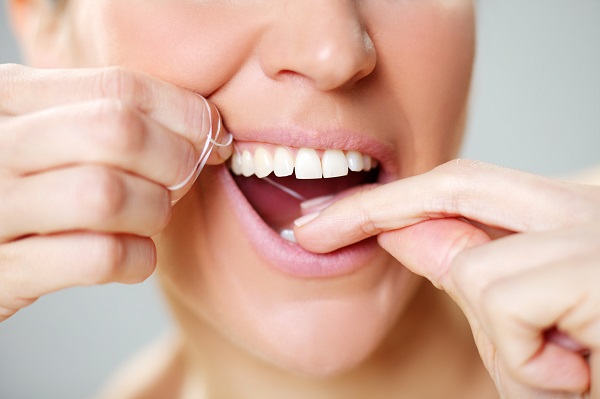
The Perils of Periodontal Disease
Periodontal disease is one of the most pervasive diseases in the United States. With nearly 47 percent of adults over 30 suffering some form of gum disease, and over 64 percent of adults over 65 with moderate or severe periodontal disease it is more than a serious issue. Aside from causing bad breath, bleeding gums, and eventual tooth loss, periodontal disease is being linked to more serious, chronic diseases like kidney disease and Alzheimer’s. As dentists we do our best to teach our patients how to prevent periodontal disease with proper oral hygiene and regular professional cleanings. However, this disease still plagues an overwhelming percent of the adult population. Thankfully, new research is being conducted to understand if the effects of periodontal disease can be reversed, if it cannot be prevented.
Periodontal Disease
Periodontal disease, or gum disease, is a serious infection and inflammation of the gum tissue. It is caused by an abundance of plaque, tartar, and calculus forming on the teeth and surrounding gum tissues. The bacteria that causes the plaque to form weakens the tissues, and once they are under the gumline the bacteria is impossible to remove by brushing and flossing alone. Risk factors that make people particularly susceptible to periodontal disease are, smoking, diabetes, poor oral hygiene, stress, and dental apparatuses that no longer fit correctly. Healthy people can prevent periodontal disease by removing the bacteria living on their teeth by brushing twice daily, flossing every night, and seeing their Melbourne dentist every six months for a routine cleaning and checkup.
How Dentists Can Help
Scheduling an appointment with your dentist for bi-annual check ups and cleaning is an extremely important part of an oral health routine. During these checkups your dentist will be able to check your teeth and gums for signs of gum disease. If you have gum disease, it is extremely important to schedule these appointments because only your dentist will be able to correctly clean your teeth and gums to keep the symptoms and perils of periodontal disease at bay. If you have periodontal disease you will likely need to undergo procedures called scaling and planing. These procedures remove plaque and bacteria from the teeth under the gums. Antibiotics for the gums may also be necessary. When you make your regular appointments it is easy for your Melbourne dentist to notice the signs of periodontal disease and treat you before a reversible case of gingivitis becomes a severe case of periodontal disease.
Consequences Of Periodontal Disease
Periodontal disease is easy to diagnose, but difficult to cure and maintain. However, you do not simply wake up one day with periodontal disease. It is a progressive disease that can be caught and treated before it becomes a serious issue. The first sign of gum disease is puffy, red gums that easily bleed and begin to pull away from your teeth. Additionally teeth may become sensitive, hurt when you chew, and loose. If left untreated, tooth loss is imminent. Bone loss follows tooth loss and results in diminished quality of life. However, the functional and aesthetic consequences that follow loss of teeth and bone mass are far from the only things that afflict those with periodontal disease.
Links to kidney disease, esophageal and pancreatic cancer, chronic cardiac conditions such as heart disease and abnormal blood pressures, rheumatoid arthritis and even to Alzheimer’s have been made with periodontal disease. The virulent bacteria that causes periodontal disease is present in all of these other chronic and life-threatening conditions. And, while there is no causal link currently proven, the importance of keeping your mouth healthy to keep your whole body healthy is becoming a well-known fact.
Reversing The Effects Of Periodontal Disease
Until now it is known that periodontal disease is not a disease that can be reversed. It must be maintained by dental professionals and the patient through routine cleanings and impeccable oral hygiene. However recently, a large team of researchers and scientists have discovered a method that may reverse periodontal disease.
After years of collaboration researchers published a paper in the Journal of Clinical Periodontology. They found that a protein complement system is responsible for inflammation in the periodontal tissue and isolated the third component of that system, C3, as a target for treating and reversing periodontal disease. This C3 is the key that triggers inflammation and activates the immune system to fight the inflammation. Researchers found an inhibitor to this protein call Cp40. To test their theory they administered Cp40 once a week to an inducible model of periodontal disease. The administration of this inhibitor proved to reduce signs of disease. It appears that researchers have stopped inflammation with the inhibitor. This in turn kills the bacteria that need the inflamed tissue to survive, thus reversing periodontal disease.
The next step in reversing periodontal disease is to begin human trials. The researchers are confident that use of Cp40 will be able to improve the lives of those with periodontal disease and supplement the current treatment of periodontal disease, scaling and planing.
Periodontal disease is a very serious condition affecting more than half of the American adult population. This disease is entirely preventable with routine oral care and professional cleaning performed by your Melbourne dentist. It is exciting to know that researchers are on their way to reversing periodontal disease with protein inhibitors. Until this therapy proves successful in humans, schedule an appointment with Dr. Brazdo today.

